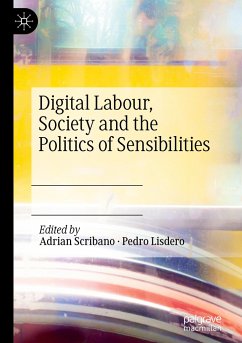
Critical Security Studies in the Digital Age
Social Media and Security
Versandkostenfrei!
Versandfertig in 6-10 Tagen
98,99 €
inkl. MwSt.
Weitere Ausgaben:

PAYBACK Punkte
49 °P sammeln!
This book demonstrates that the disciplinary boundaries present within international relations approaches to security studies are redundant when examining social media, and inter- and multi-disciplinary analysis is key. A key result of the analysis undertaken is that when examining the social media sphere security scholars need to "expect the unexpected". This is because social media enables users to subvert, contest and create security narratives with symbols and idioms of their choice which can take into account "traditional" security themes, but also unexpected and under explored themes suc...
This book demonstrates that the disciplinary boundaries present within international relations approaches to security studies are redundant when examining social media, and inter- and multi-disciplinary analysis is key. A key result of the analysis undertaken is that when examining the social media sphere security scholars need to "expect the unexpected". This is because social media enables users to subvert, contest and create security narratives with symbols and idioms of their choice which can take into account "traditional" security themes, but also unexpected and under explored themes such as narratives from the local context of the users' towns and cities, and the symbolism of football clubs. The book also explores the complex topography of social media when considering constructions of security. The highly dynamic topography of social media is neither elite dominated and hierarchical as the Copenhagen School conceptualises security speak. However, neither is it completely flat and egalitarian as suggested by the vernacular security studies' non-elite approach. Rather, social media's topography is shifting and dynamic, with individuals gaining influence in security debates in unpredictable ways. In examining social media this book engages with the emancipatory burden of critical security studies. This book argues that it remains unfulfilled on social media and rather presents a "thin" notion of discursive emancipation where social media does provide the ability for previously excluded voices to participate in security debates, even if this does not result in their direct emancipation from power hierarchies and structures offline.












